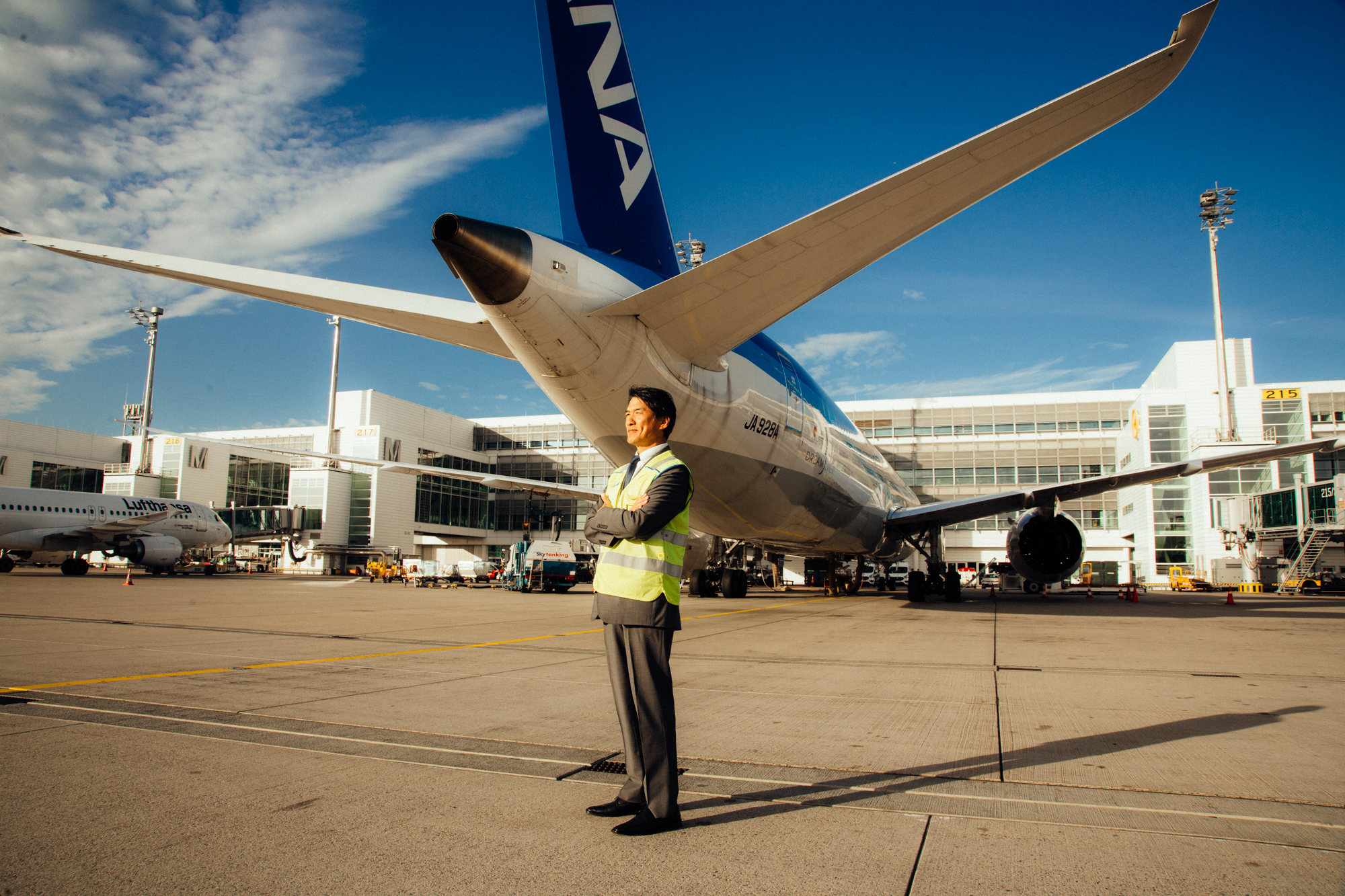Excellent sound has long been a well-known characteristic of Japanese audio products. Audio-Technica has been at the forefront of Japanese audio quality for the last 60 years. Whether record players and cartridges, microphones, headphones or innovative sound equipment for meetings in person, in the virtual world and hybrid: Audio-Technica is always an excellent choice. In addition to the sound itself, the family-owned company has also revolutionised audio marketing in its international expansion – through “Listening Events”, an early promotional idea of its founder. J-BIG spoke to Matthias Exner, Audio-Technica’s German Managing Director, about the history, development and German business of the sound experts.
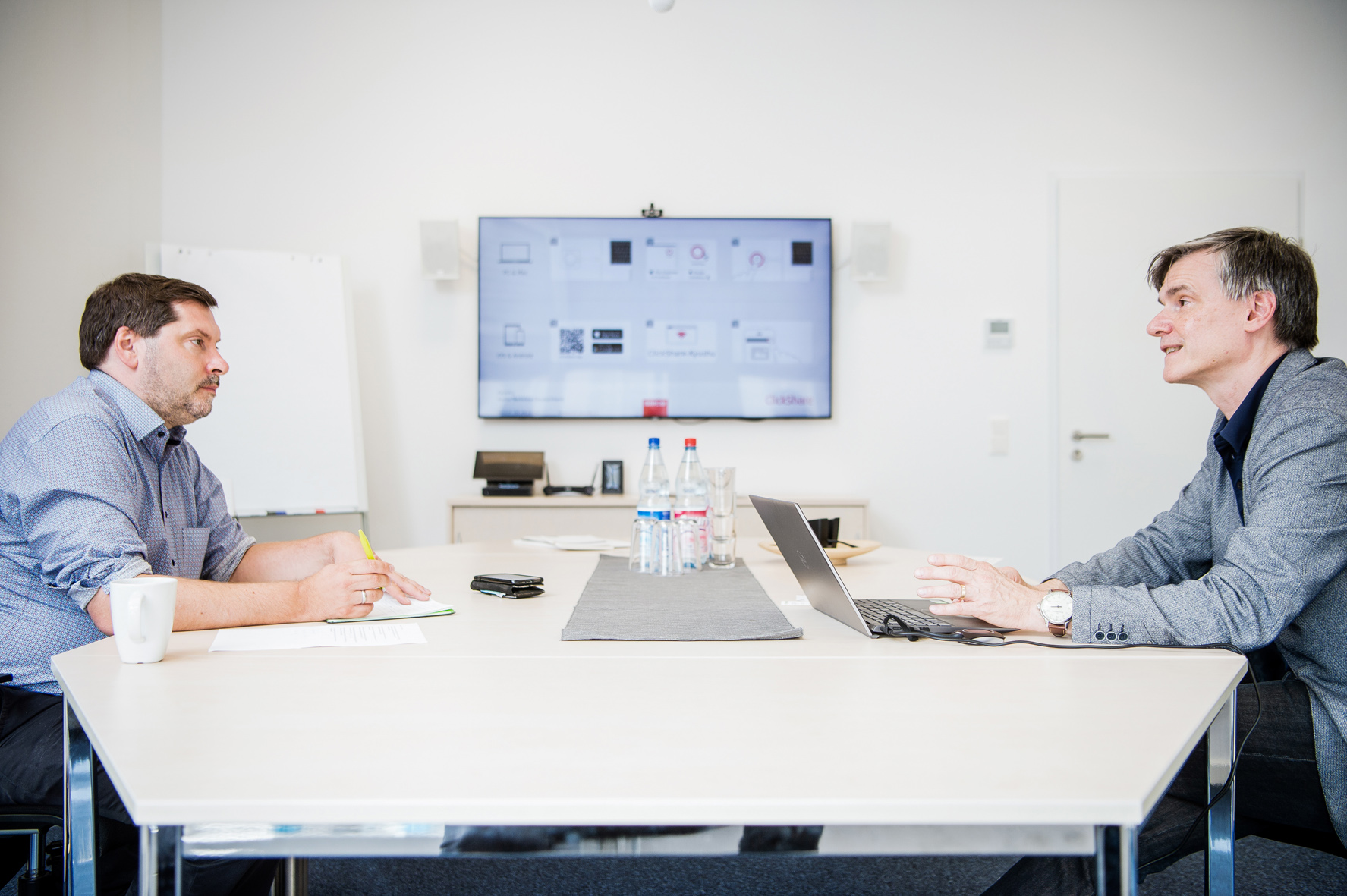
J-BIG: Mr Exner, how did it all start with Audio-Technica?
Matthias Exner: Audio-Technica saw the light of day in 1962. Our founder Hideo Matsushita always had a passion for music and high-quality sound. Back in the 60s, audio was still synonymous with mono turntables, which were hard to come by at first and also very expensive. While Hideo Matsushita was still working as a curator at the Bridgestone Museum of Art, he developed and manufactured record player cartridges on a small scale, i.e. the modules that convert the vibrations of the record into sound via the needle. Even these first individual pieces already had a really high sound quality. His goal was to make this high-quality sound accessible to as many people as possible. That is why he organised so-called listening events in Japan. People could simply come to these events with their favourite album under their arm to experience it in perfect quality.
J-BIG: So a turntable cartridge was the initial product of Audio-Technica?
Matthias Exner: Yes. And this competence actually runs through all our products and the complete history of the company. Our core competence is converting air movement into electricity or electricity into air movement. The cartridges were followed by headphones and microphones. Our approach has always been: best technology for everyone. With 4033 microphone for the first time ever, we produced the first high-quality recording studio microphone for less than 1,000 US dollars and the 40 series microphones became legendary amongst sound engineers. The development then went on rapidly and we also became the world market leader for cartridges. Then in 1982, with the development of the CD, came a shift from analogue to digital in the world of sound and we switched three factories to optical pickup production. This initially caused sales of our classic analogue products to decline and we considered what else we could do with our technological approaches. Things diversified and we ended up building laser measurement systems, consumer electronics and even sushi machines amongst others.
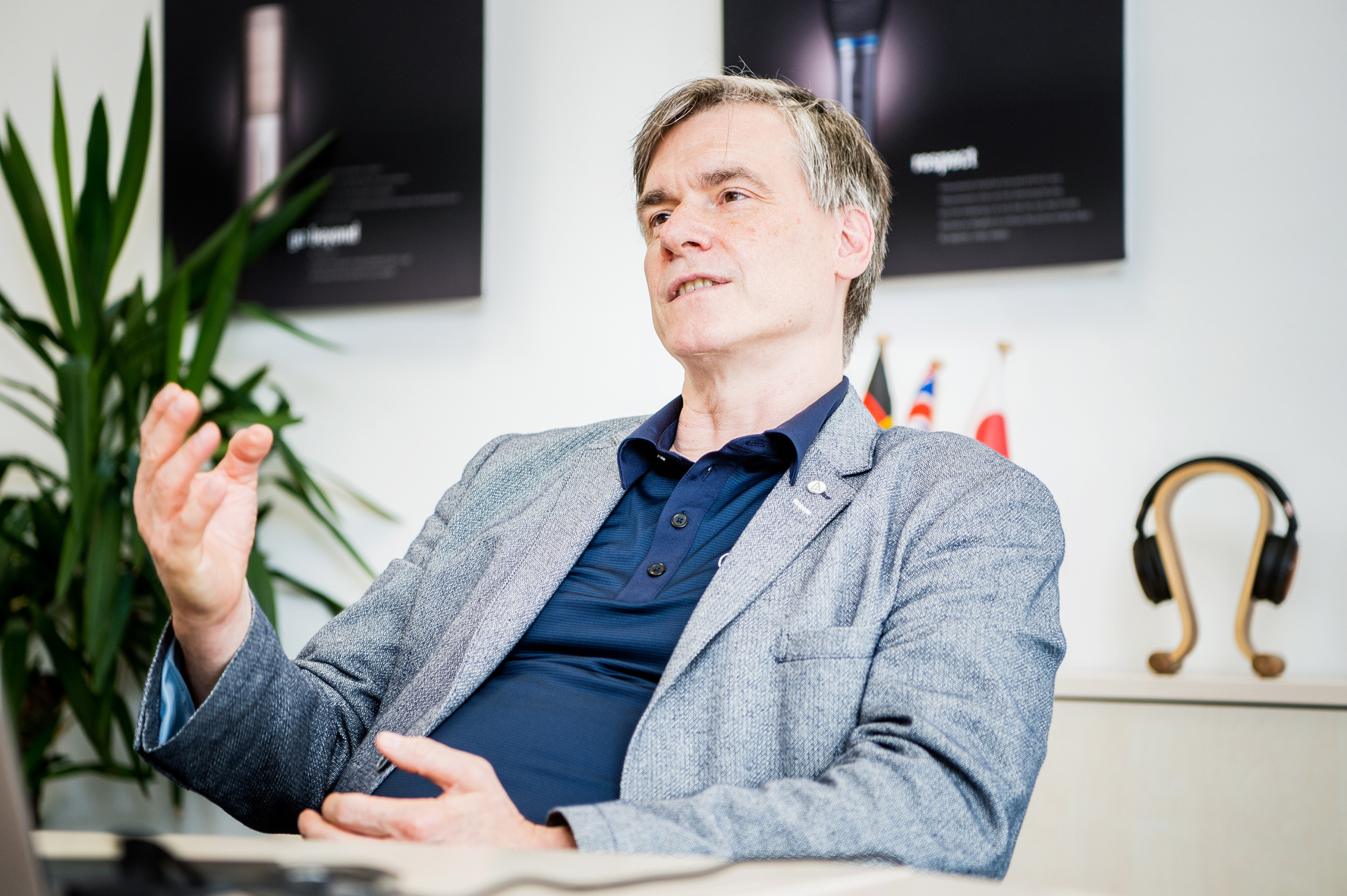
J-BIG: Audio-Technica also makes sushi machines?
Matthias Exner: Yes! In fact, the period of transition to digital was very challenging for Audio-Technica. But it was also very creative: our employees worked together on new ideas and threw themselves into every area that seemed to have potential. For example, we had an idea for a fully automated sushi machine as part of an internal competition. Today, almost four decades later, we still have this in our portfolio. But of course mainly for the Japanese market.
J-BIG: How has the internationalisation of Audio-Technica developed?
Matthias Exner: Six years after the foundation, Audio-Technica already expanded into the US. In 1978, we went to Europe, starting with Great Britain, where our European headquarters are also located. Then in 1998 we started in Germany.
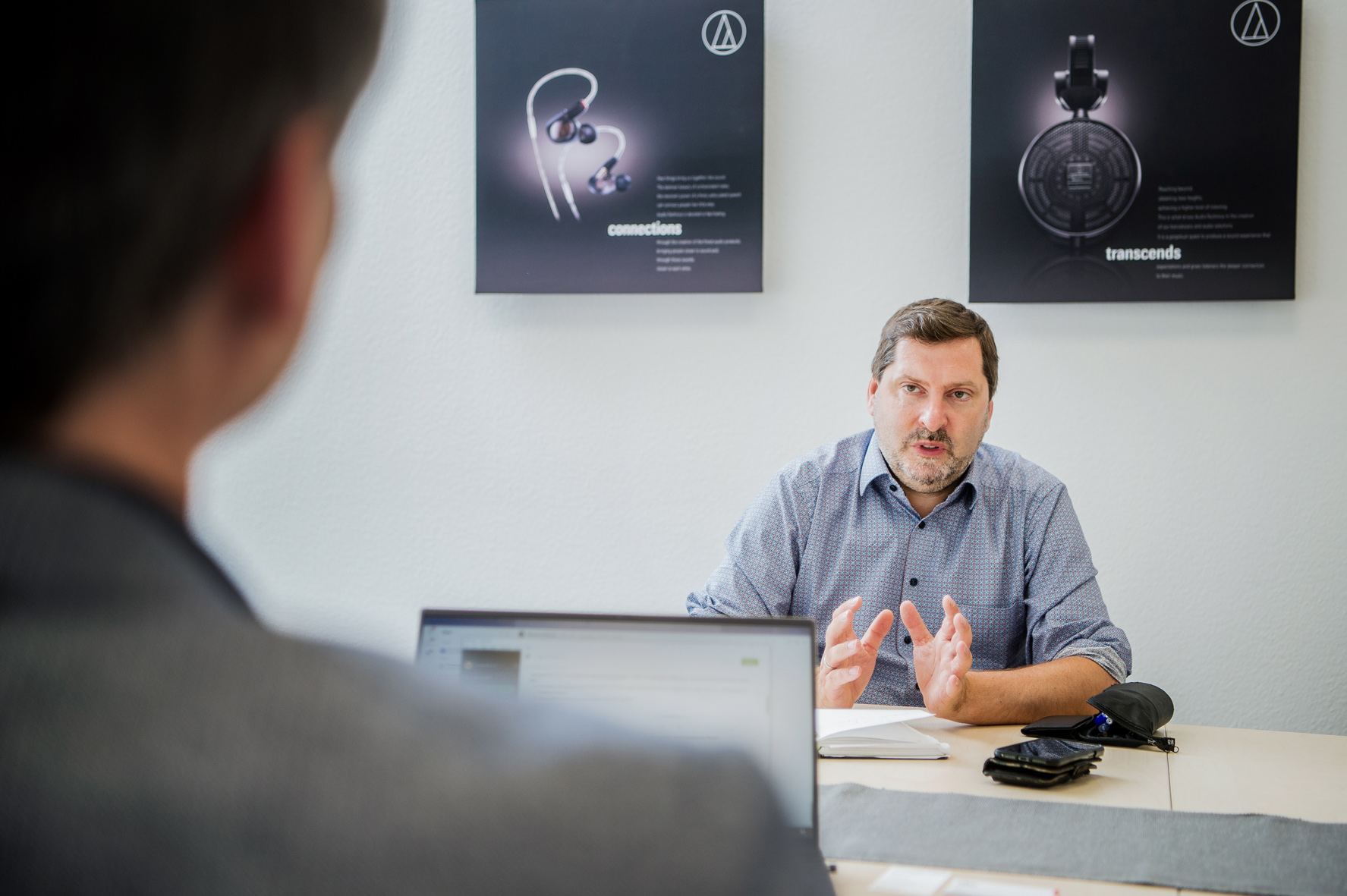
J-BIG: Then it started relatively late in Germany!
Matthias Exner: Yes, that’s true. At first, a lot was done via Great Britain. In Germany, we started from a small flat in Wiesbaden in 1998. I was told about how the boxes for the trade fair were stored in the bathtub and how the rest of our products were spread all over the flat. About ten years later, we moved into proper company premises and thus had various scattered areas in several buildings at our disposal. At our current location, where we have been since 2018, we are now far more flexible. We also do in-house trade fairs here with comprehensive training courses, which was of course more intensive before Corona, but is becoming more so again. It’s great what you can do here that you couldn’t do at the old locations.
J-BIG: Let’s talk about numbers. How much turnover does Audio-Technica have and how is it positioned internationally?
Matthias Exner: In general, our global group of companies collectively turn over approximately 450 million US dollars. We have our own subsidiaries and sales teams in the Americas, Canada, Europe, China, Southeast Asia, and of course Japan. In addition, we have our own manufacturing facilities in Japan, China and Taiwan. Depending on how you look at it, between 3000 and 4500 people work for Audio-Technica. In Europe we have more than 160 colleagues, about 40 of them in Germany, including our sales representatives. The European business accounts just under 20 percent of our global turnover, of which nearly one third is generated in Germany.
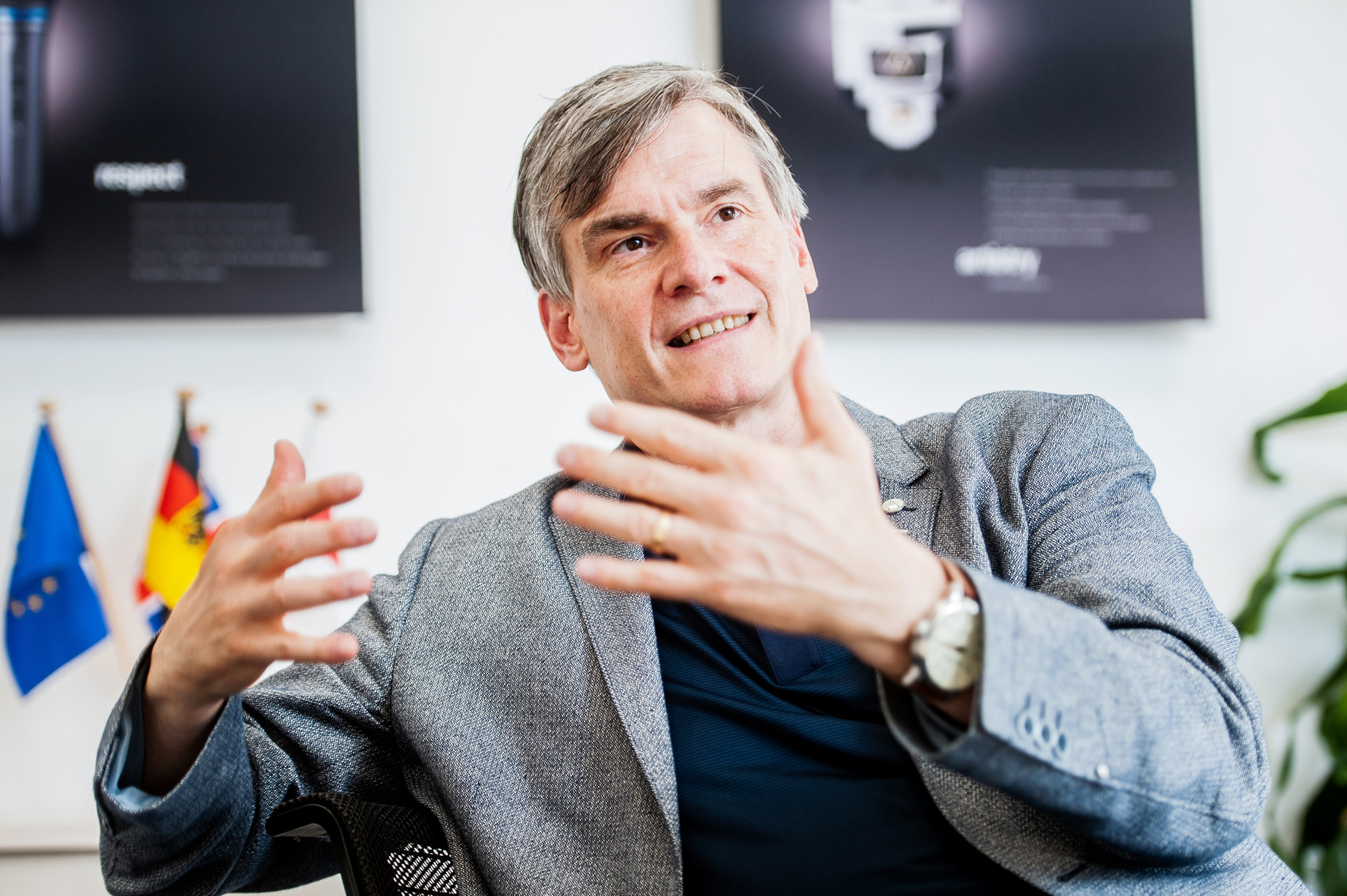
J-BIG: If we look at the product categories, what do you sell the most?
Matthias Exner: In Germany, turntables, cartridges and headphones are clearly the most frequently purchased products for us. In addition, the commercial installation sector is important, in which we invest a lot of time and expertise. It’s about conference systems and integrated microphone systems. A brand new product is our beamforming microphone for ceiling installation in conference rooms. The great thing about this microphone is that we can specifically define areas in the room that are picked up and others that are almost completely blocked out from picking-up. We are very proud of this excellent product, which really can completely block out background noise. For example, if I clap, the microphone recognises that it’s not speech and doesn’t pick up the noise. It also has integrated echo cancelling, which is required in remote meetings and with home office staff, which tend to cause sound problems in traditional conferences. Recordings and all kinds of archiving and translations also work better, because the higher the quality of the source material, the better the algorithms of new AI programs can process the audio into text and translate it afterwards, for example.
J-BIG: Especially in Corona times, the demand for good audio in virtual conferences must have increased enormously, right
Matthias Exner: We saw an increase before that as well, but Corona has of course greatly accelerated that. And we can also expect virtual and hybrid meetings to play a big role in the future and not go back to pure face-to-face events. I recently spoke with a professional planner who advises the operators of a training centre for highly qualified professionals. They have a large training centre and benefit greatly from being able to offer these online, especially for people with long commutes. At the same time, the desire for face-to-face meetings remains, which is why the solution is again “hybrid”. And for that you need high-quality audio, which is why Audio-Technica is of course in the conversation everywhere in such places and in such planning.
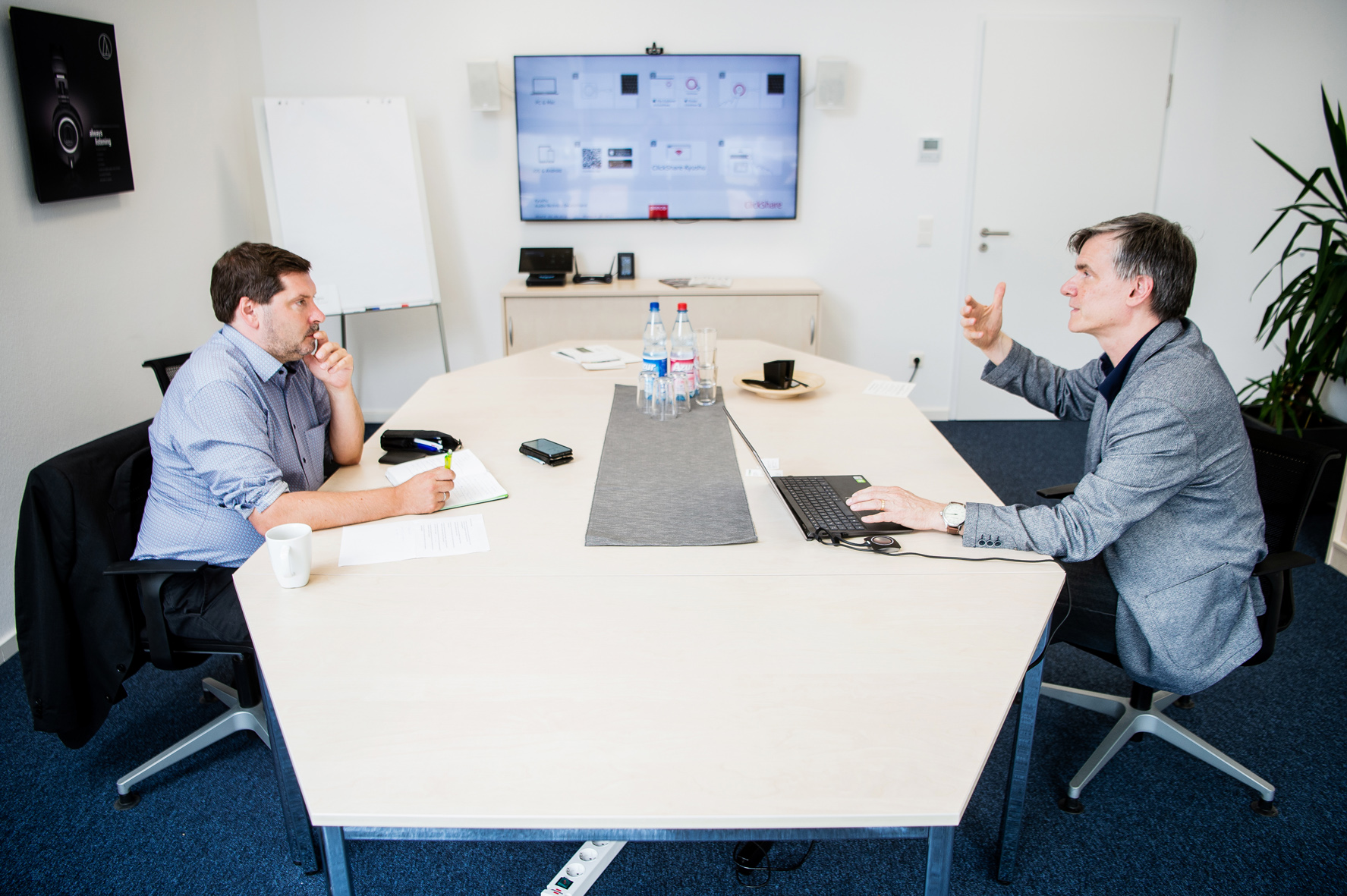
J-BIG: So in general, people are now willing to pay more for audio quality?
Matthias Exner: To a certain extent. What has always annoyed me to no end about meeting room technology is the following: in the classic top management of large companies, you have really great video technology and insanely high-quality conference furniture and tables. They cost more than many people earn in a year. But when it comes to audio, many forget how important it is that if, for example, all the video technology fails, audio continues to work. Because without audio, communication is finished. Nevertheless, very little is released or planned for audio on the budget side. People often ask themselves whether they really need 16 microphones for 16 people and then usually calculate downwards to save costs. The low budget from the outset deprives the client of the chance to really experience what is feasible.
J-BIG: But why doesn’t audio get the appreciation it deserves?
Matthias Exner: I think because you have to experience it. Hence the topic of Listening Events. At the end of this year, as part of our 60th anniversary, we will pick up where Hideo Matsushita started and revive these Listening Events. And we have many more plans.
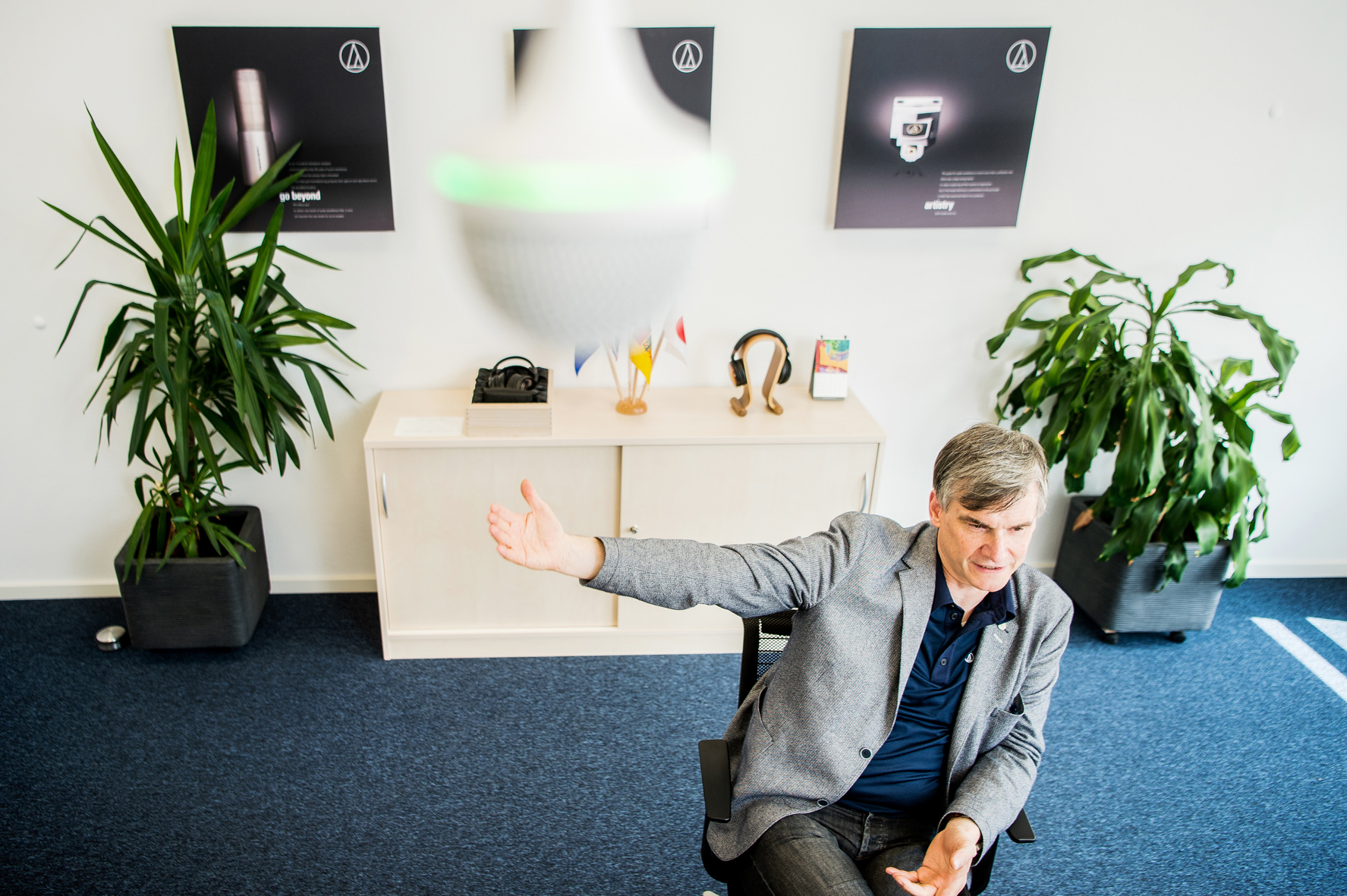
J-BIG: Who currently determines the strategic direction of Audio-Technica?
Matthias Exner: Audio-Technica is still in family hands. Currently, the son of the founder, Kazuo Matsushita, runs the company. And the next generation change is coming up in the future. I am already curious to see what developments a future successor will bring forward. We don’t have external investors on board and are therefore in control of our own destiny. Therefore our shareholder value objectives are toward longevity and sustainability. At the same time, decisions sometimes take longer, because Hideo Matsushita’s descendants naturally want to keep the legacy in the family and think carefully about which risks they take and which opportunities they seize.
J-BIG: Are there things that are special about the German market? What is the German like as a customer?
Matthias Exner: I think “critical” is a quality that can certainly be attributed to him. In general, we have some challenges here. In commercial audio, we face a very compact, massive field of competitors. For example, one of our competitors is currently divesting the consumer division and focusing on B2B. In the past, we had gaps in our portfolio. In the meantime, however, our product development is delivering excellent solutions. The fact that we can often still deliver in view of Corona and the supply chain problems is currently very beneficial to us in building up new contacts. In the consumer audio sector, cooperation with dealers is very important in Germany, as sales are mainly made through the Expert Group, Media-Saturn or Euronics. Amazon we are handling centrally via our EMEA team. Of course, independent dealers also play a role, and we work well with them, especially in the field of record player cartridges. Whilst we are recognized in Japan and Asia as a leading brand, our challenge in Europe is to broaden our reach to end customers in general. Audio-Technica must be better positioned as a brand.
J-BIG: Where is the border between commercial audio and consumer audio?
Matthias Exner: The transition is fluid. Generally speaking, equipment that has to be installed by a system integrator or is rented out by an event professional falls into the commercial audio sector. It’s the B2B business, so to speak. The consumer audio sector describes B2C, i.e. sales to our end customers. In Germany, we are not yet where we belong, because in the past we focused too much on flagship models that are currently difficult to deliver. As a result, retail has noticed that we have other great products in our range. In the past, colleagues often said that certain models in the entry-level segment would not sell well in Germany. But here the perception is changing and the portfolio is also growing in this country.
J-BIG: Presumably you have the problem in the end consumer sector that there is a certain niche that takes and accepts high-end products, while the rest are content with the smartphone, right?
Matthias Exner: That is one of the challenges we have. In Japan, we were very far ahead for a long time with our wired headphones and are now also coming up with wireless headphones. But there are some products that we don’t sell in in Europe due to compliance issues and market expectations. Nevertheless, we also want to tackle and occupy the consumer electronics sector in the headphone area. Realistically, however, this is a parallel project for me, because first we want to recapture our phono position as number one. Cartridges are currently developing excellently. In addition, our extremely successful AT2020 microphone – for which we have just launched a successor, the AT2020x – is an important product for us that is interesting for content creation of streamers, bloggers and podcasters.
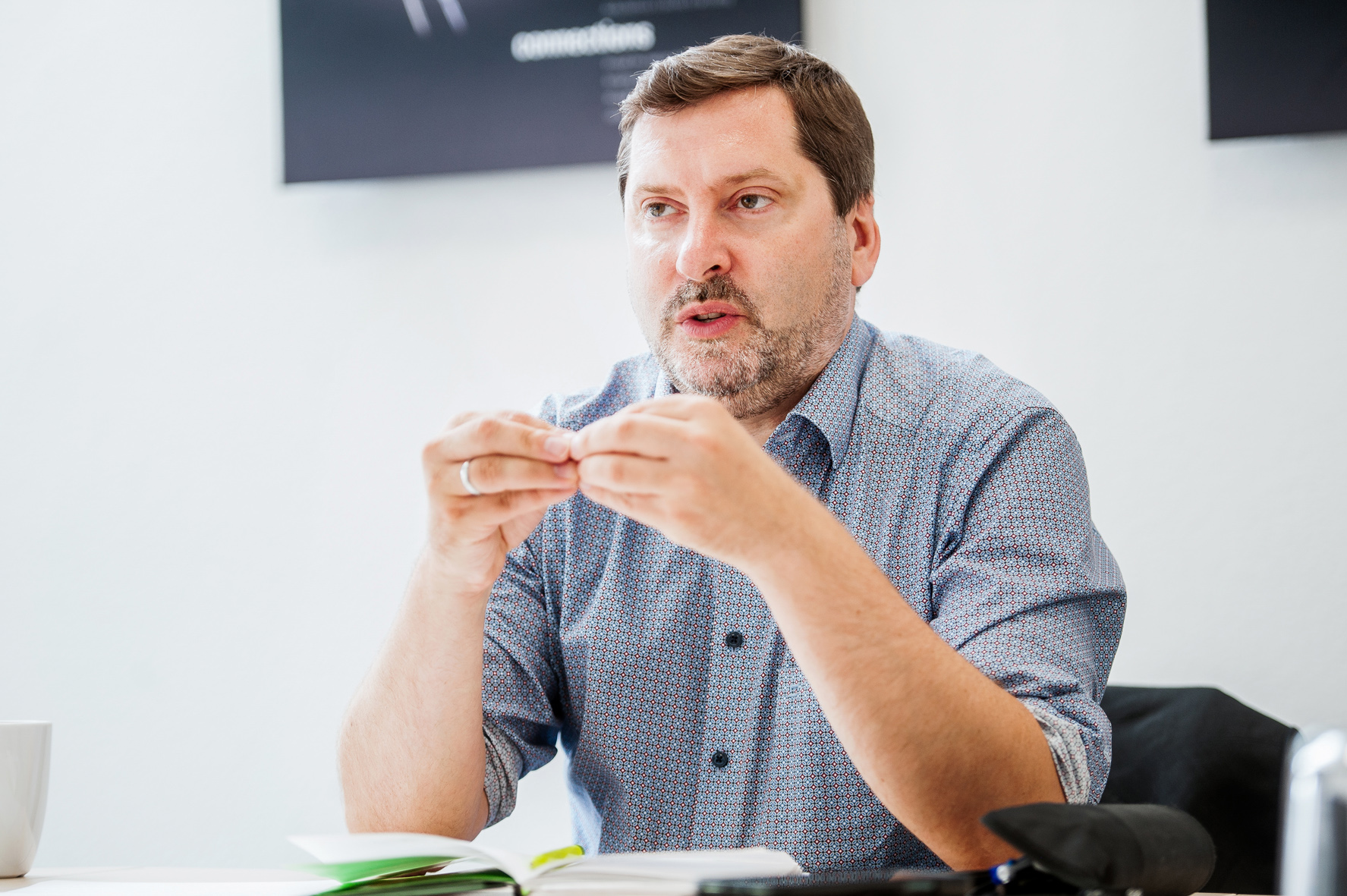
Free Subscription
“J-BIG – Japan Business in Germany” is the e-mail magazine dedicated to Japanese companies and their business activities in the German market.
J-BIG: What is your own history with Audio-Technica?
Matthias Exner: I’ve been on board here at Audio-Technica Germany since 2018 and helped set up the GmbH. Before that, we were a limited company, a dependent subsidiary. In general, I have been working at Audio-Technica since 2013. At that time, I was still working from England as Sales and Marketing Director for the EMEA region (Europe, Middle-East & Africa). When Brexit came, we made the decision within eight weeks to transfer our European warehouse to the Netherlands and turn Germany into a GmbH. In fact, I asked my boss at the time if I could then move my job from London to Frankfurt and the end result was that he offered me the position as Managing Director for Germany. Before Audio-Technica, I worked for a Scottish loudspeaker manufacturer and my last job before Audio-Technica was for an American manufacturer of network-based audio DSP systems, but the American mentality led me to part company and I am now happy to work for a Japanese company. I have been with Audio-Technica longer than I have been with any other company.
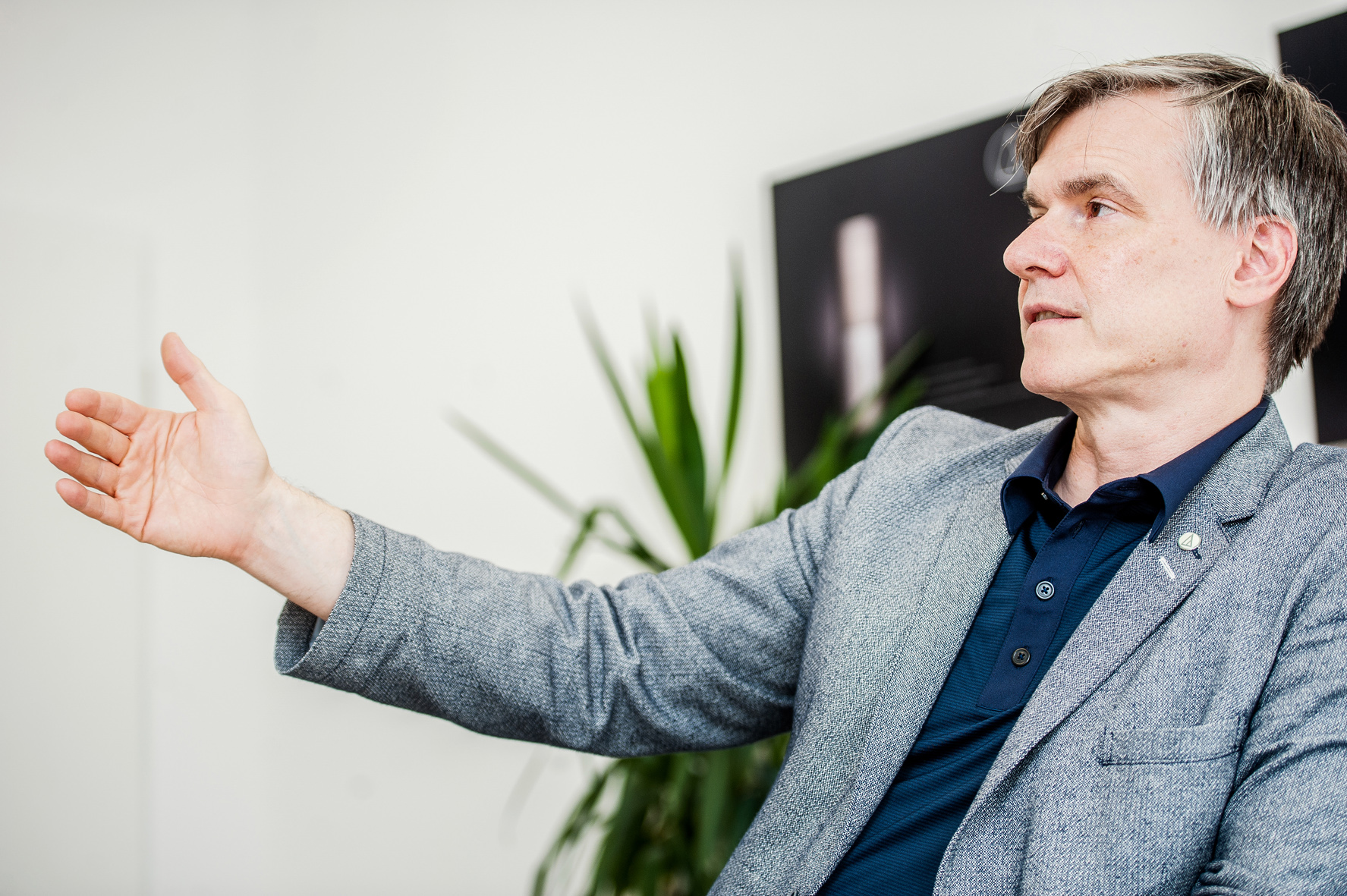
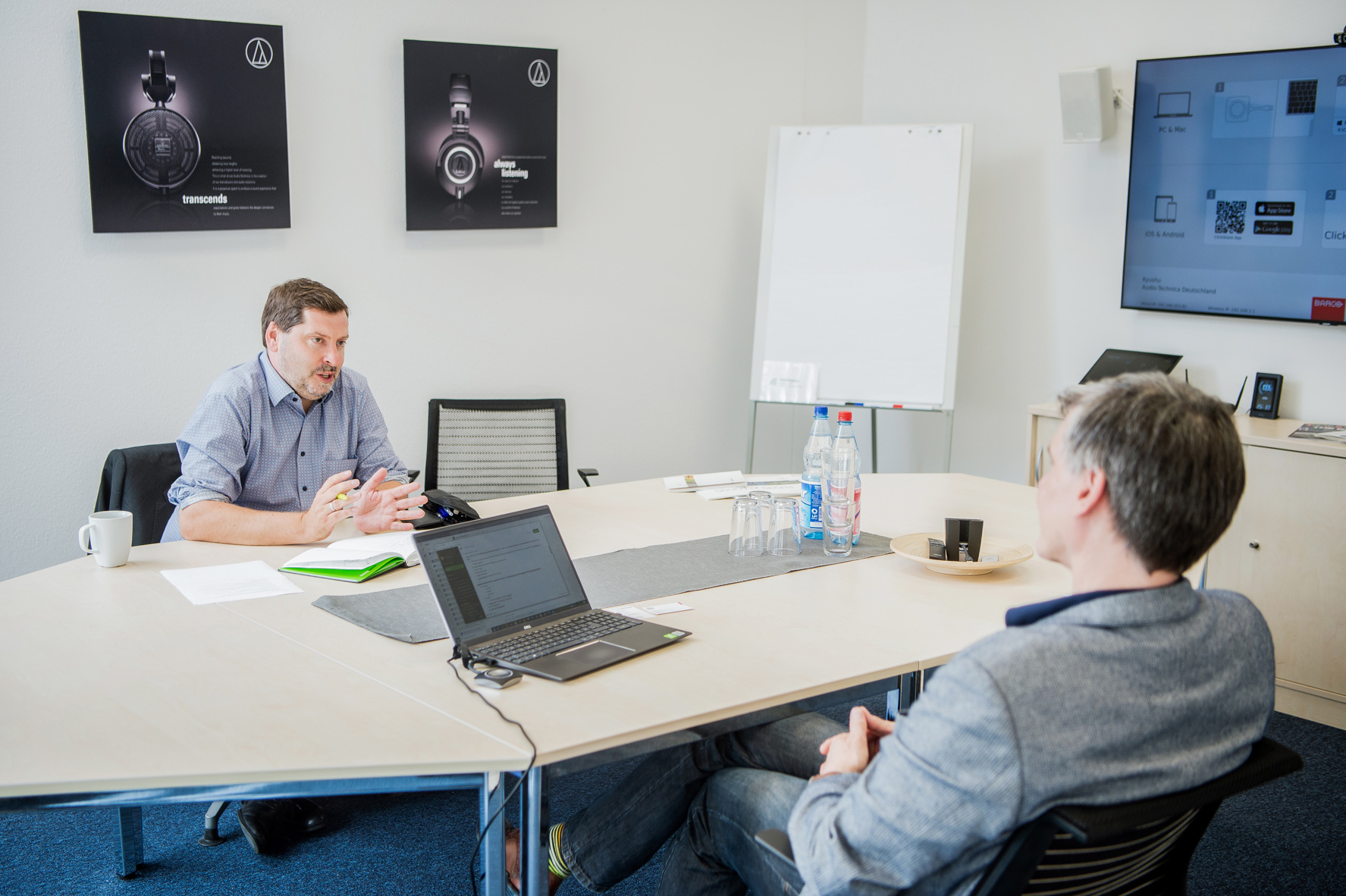
J-BIG: With your insights into different corporate cultures, how would you describe the typical Japanese mentality, what do you think is different about the Japanese?
Matthias Exner: Something typically Japanese that I experience is paying respect to superiors. This can sometimes mean that it takes longer to make decisions, and processes can be slowed down, which can be very frustrating. Being aware of this is important for me to be effective in my role. But I’m also seeing positive developments in terms of our performance. In my job interview, I asked our then European president and our CFO about Audio-Technica’s values. They said that they value their employees very much. I think if you compare it with the Anglo-Saxon and American areas, it’s a case of “hire and fire” if someone doesn’t deliver straight away. I don’t get that impression from Japan, where there is more interest in and appreciation for people.
“Something typically Japanese that I experience is paying respect to superiors.”
J-BIG: How does Audio-Technica Germany work with Japan?
Matthias Exner: In general, I would say that we are very independent, because we have little contact with the Japanese in our direct day-to-day business. But of course they are on the board and there is also an exchange of personnel between the departments. It is quite common for someone to go to Japan for two years or vice versa. We have quarterly product meetings in Japan and meetings at trade fairs around the world. There is a global meeting once a year where the management level comes together. This exchange is always very important to me personally. I also try to get to know people and to push things forward together. Because our team is often in Japan, there are sometimes friendships developing and colleagues who are in personal exchange. I always find that very exciting. I also tried to learn Japanese once, but unfortunately failed due to time constraints.
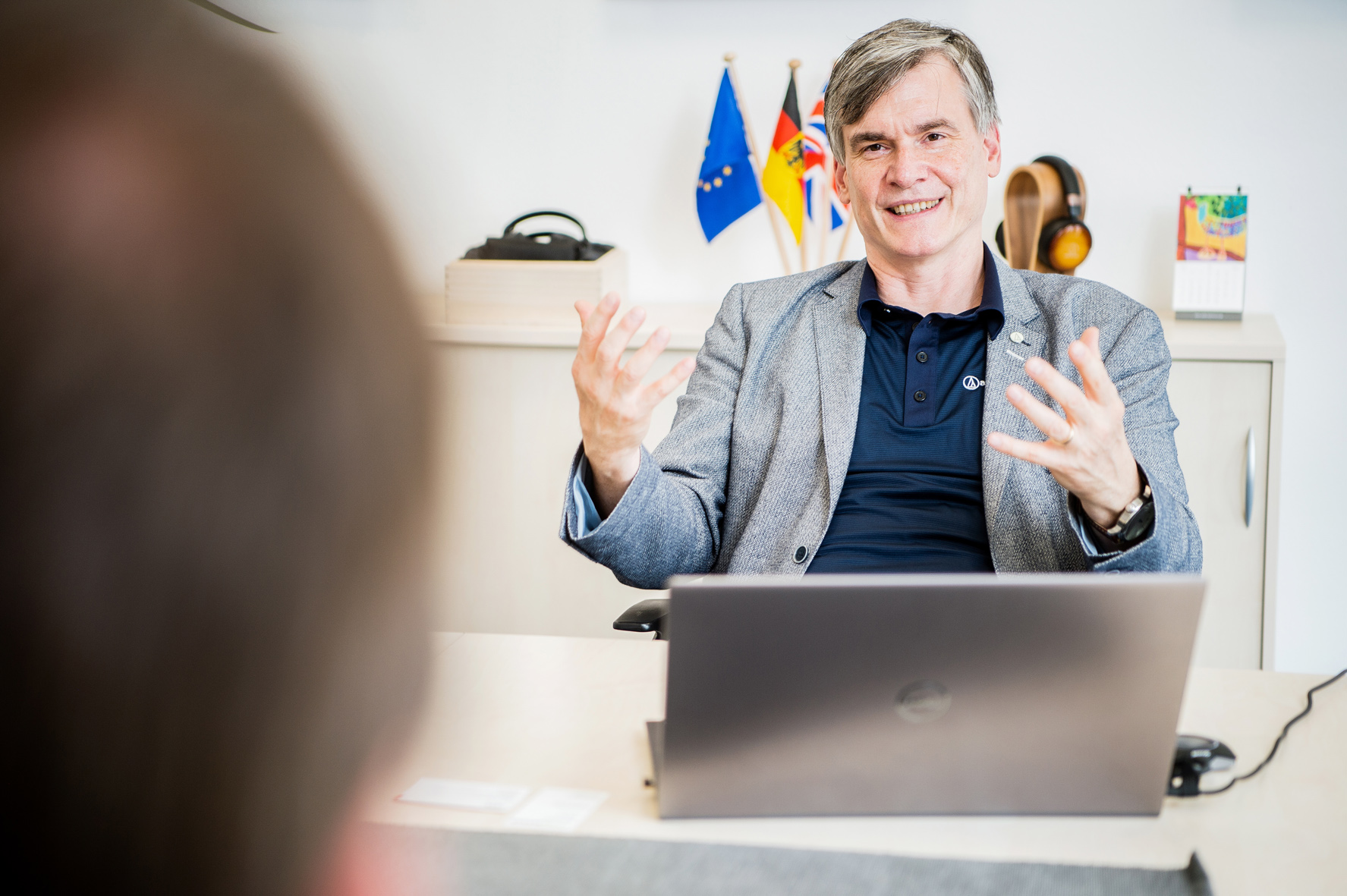
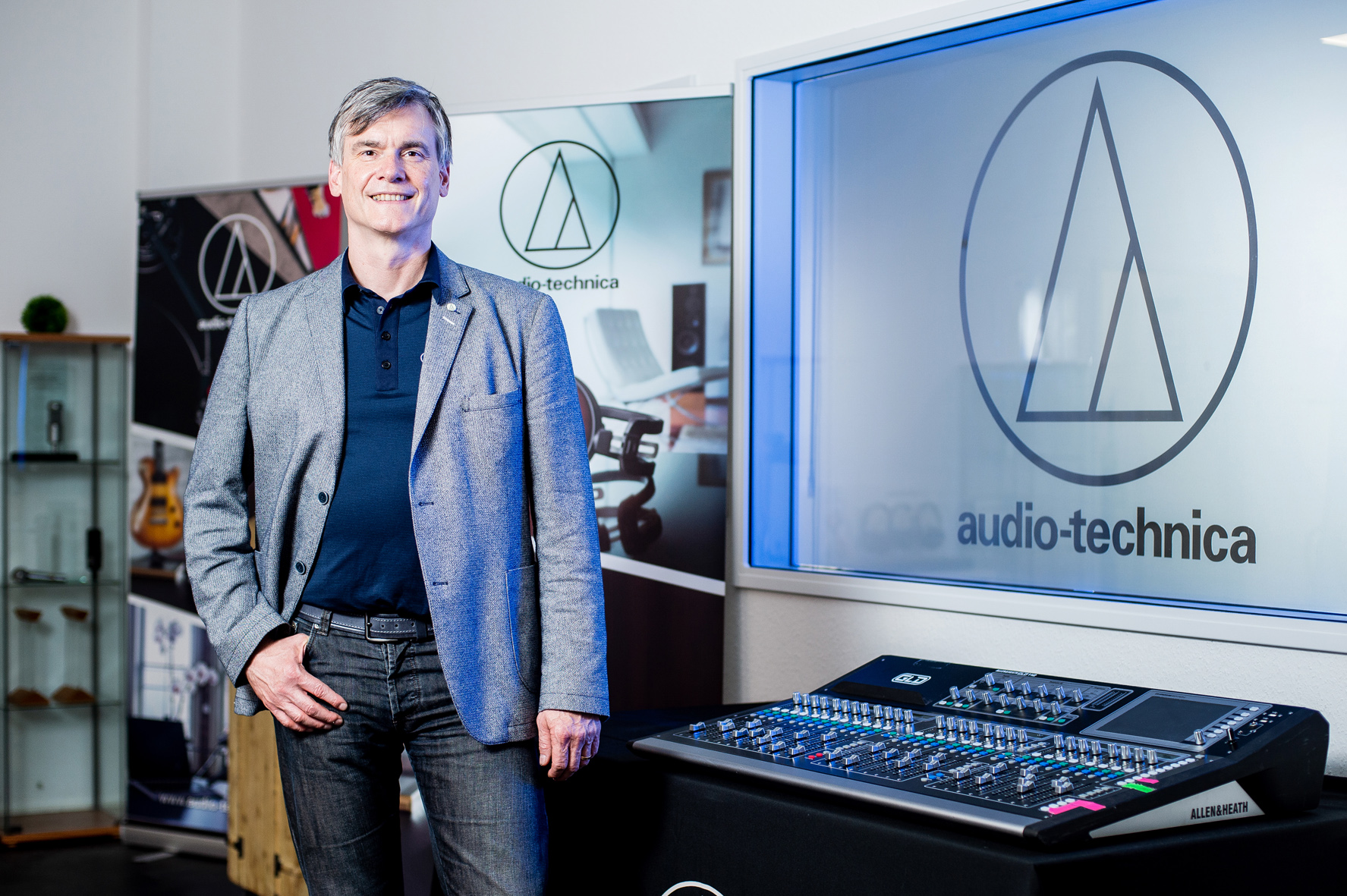
J-BIG: Where will Audio-Technica go in the future?
Matthias Exner: We definitely want to become better known in the consumer sector. Event technology experts already know our products very well. Elton John, for example, likes to use our AE6100 Hypercardioid Dynamic Handheld Microphones, very recognizable with the red ring. The older generation also already knows us from our cartridges and turntables. But we need to reach the younger generation even better. We offer education programs, for example. Audio-Technica is also one of the founders of the Analogue Foundation. This is an association of interested parties who cherish the analogue and appreciate the quality of analogue audio. For this purpose, we have set up a whole complex in Berlin Mitte with a large studio, two small studios and a listening café. This will be officially launched within the next few months and our guests can then go there to listen to really high-quality audio technology. We also have a studio residency program where we invite selected artists to use our equipment and studio to realise their projects. We also want to specifically promote women in audio and include queer and non-binary people in the selection process. We want to bring forward people who are not yet so well represented in society.
J-BIG: With Lossless Audio, technology companies like Apple and streaming platforms have now also caught up with audio quality. Do you see opportunities for cooperation there?
Matthias Exner: Absolutely, because Lossless Audio also requires high-quality equipment. We are constantly developing our in-ear true wireless systems and also the converters, and we make sure that we always achieve new levels. We have very, very long battery runtimes, and of course we want to continue to improve them. Our statement for the 60th anniversary is: We are an analogue company, but we also support the streamers. Because you can’t take your giant speakers with you on a plane or train, but you need quality audio on the road. Streaming and analogue are therefore not a contradiction for us, but can be combined well.



